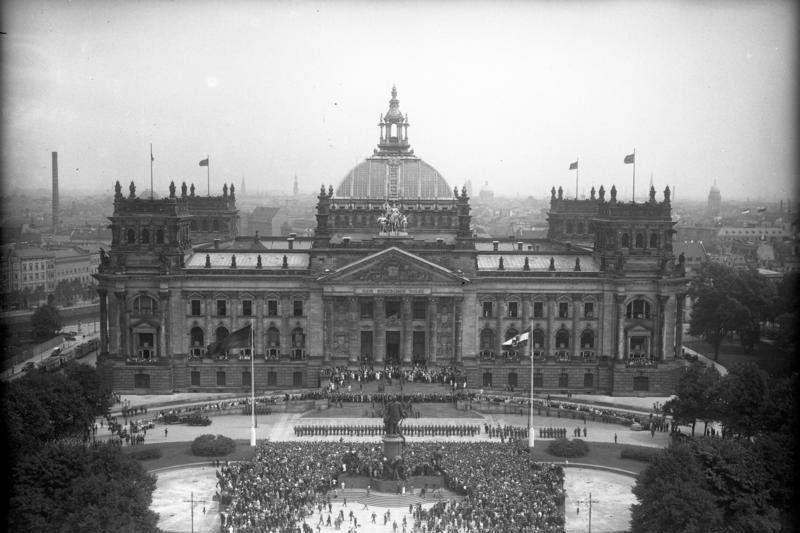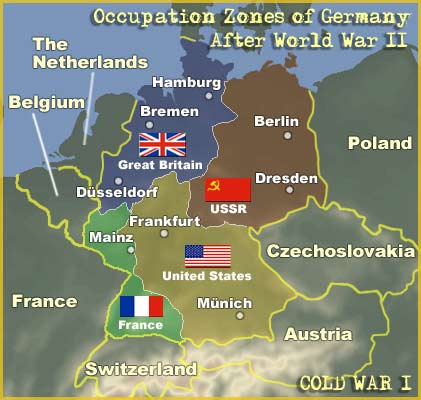 |
| Reichstag Building for the Weimar Republic. |
Germany ultimately lost World War I and faced high
repercussions from the allied forces. Needless to say the German’s were unhappy
with this, which caused them to lose faith in the government. The Weimar
Republic which was born during the Great War was destined to fail because of
the turmoil in which it came from. Many Germans were unhappy with the republic
because it was a representation of the allied force governments which were
making life hell for the Germans. The financial burden from the treaty after
the war was just too much for Germany, this led France to invade German and
start taking coal. This then required Germany to import its coal and this made
it extremely expensive. Massive inflation set in and Germans resorted to
bartering and burning money for heat. How could Germans stand behind a
government that was letting this happen to them? It is impressive that the
Weimar Republic was able to survive for fourteen years with a deep seeded
resentment for them from almost all Germans. This did provide an opening for
Hitler to make his move to power.
 |
| The S.P.D was a governmental party trying to gain control. |
There was a great amount of turmoil surrounding the Weimar
Republic with other parties trying to gain support and power. I found it very
interesting that the Republic did not even have support from its civil
servants, yet those people did nothing to overthrow the government, they just
waited it out. Two major parties that posed the greatest threat to the Republic
were National Socialism and Conservatives. The German political identity was
extremely unsettled and insecure from the time of World War I until 1933 when
Hitler finally took control. The governmental limbo was over for Germany now
that Hitler has come to power. At this point I think Germans felt that any
other form of government was better than the republic, but they were not all
praising Hitler.
When looking at other countries the Germans saw that most of
them were run by dictators and because of the Great Depression “the immediate
future belonged to the strong men of every country” (Hagen246). There was not
an overwhelming affection for Hitler from the Germans, many did not like him or
his ideals. However, Hitler created much better working conditions and
opportunities for many Germans which benefited
copious amounts of people. Hitler’s first act of war came against Austria in
March of 1938 and “the German nation reacted with jubilation… Great Germany,
the goal the liberals… and the Social Democrats… had supported, was now a
reality” (Hagen261). However, by the time Poland was invaded there was little
enthusiasm from the German people and even some Nazi delegates.
| This is a map of Nazi expansion. Everything in blue was Nazi territory. |
 |
| Germany split up after WWII |
During the second half of WWII, when it was coming to an
end, Germany was being attacked through the sky. A large amount of German
heritage was lost through this process which had to have devastated many German
people. Hitler’s actions made all the other German parties come together under
a “common standard, one that establishes respect for human dignity…”
(Hagen285). The German people were not like Hitler, they did not want to be
associated with him and they wanted this war to be over. As the allies invaded
Germany it was seen as liberation by the people, until the consequences of the
war had to be paid. People were living in squalor after the war, no shelter, no
food, and no laws. It was now unclear whether a German nation still existed.
Germany was divided up among the allied powers as well as Berlin. Germans were
bitter about the dismantling of industries, but democracy began to spread. Germany
remained divided between the Western powers and the Soviet Union. The Western
side “declared creation of a full German nation state to be one of its
permanent goals” (Hagen297).
No comments:
Post a Comment